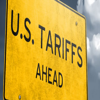Insights
Investment Insights by our experts and thought leaders
Harnessing Change-Monthly Insights: Asian Equity (July 2025)
by — 19 August, 2025
Markets continued to be supported by easing financial conditions, but they remain volatile amid the easing of trade tensions and geopolitical changes in the Middle East. Despite this smidge of
uncertainty over the near-term outlook, we believe that Asian markets can still offer attractive returns.
On the ground in Asia-Monthly Insights: Asian Fixed Income (July 2025)
by — 19 August, 2025
In July, Asian local government bond yields broadly declined, diverging from the rise in US Treasury (UST) yields. We expect investor appetite to remain firm for higher yielding bonds in India,
Indonesia and the Philippines relative to their regional peers, while strong inflows in Singapore and Thailand have boosted liquidity and buoyed local bonds.
Balancing Act: Global Multi-Asset Quarterly (Q2 2025)
by — 13 August, 2025
The April-June quarter was marked by an initial rise in volatility followed by market sentiment improving on factors such a US rate cut expectations. We maintained our overweight in growth assets
during the quarter while trimming our overweight in defensive assets.
Navigating Japan Equities: Monthly Insights From Tokyo (August 2025)
by , — 12 August, 2025
Japan’s July upper house elections marked a pivotal moment in its political and economic trajectory. While the ruling coalition’s loss raises concerns over fiscal discipline, it could steer Japan
toward a consumption-led economy. Japan could experience domestic-driven growth not seen in decades.
Global Equity Quarterly (Q2 2025)
by — 07 August, 2025
The sky isn’t the limit for financial markets, and the stars won’t provide guidance or answers. We will keep our feet firmly on the ground, continuing our search for Future Quality ideas, where we
believe stock selection will remain the key driver of excess returns.
Fed, BOJ and China navigate uncertain growth and inflation paths
by , — 01 August, 2025
US and Japanese central banks held rates steady amid mixed economic signals, with the Fed facing internal dissent and the BOJ turning modestly hawkish. Meanwhile, China appears to be opting for
strategic caution. As rising tariffs and uncertain inflation dynamics continue to complicate the global economic outlook, policymakers in key economies are signalling caution over conviction.
Balancing Act Monthly Insights: Global Multi-Asset (July 2025)
by — 31 July, 2025
Growth assets remain appealing, as we believe that global economic growth will stay resilient despite the ongoing uncertainties. In defensive assets, high yield stands out as it offers higher levels
of return than traditional bonds while exhibiting much lower levels of volatility than equities.
As always, we are focused on finding ideas that are supported by the four pillars of Future Quality investing: franchise quality, integrity of management, balance sheet strength and valuation. We
expect AI, energy and defence to continue providing attractive investment ideas given the structural changes anticipated in these industries.
Japan elections put focus on fiscal questions and tariff impacts
by , — 23 July, 2025
The recent Japanese Upper House elections resulted in the ruling coalition losing its majority, leading to market uncertainty. Despite potential challenges in policy-making, ongoing trade negotiations
with the US and fiscal discipline negotiations remain key focus areas, impacting Japanese assets and global market dynamics.
Harnessing Change-Monthly Insights: Asian Equity (June 2025)
by — 14 July, 2025
According to Wall Street lore, investors should “sell in May and go away”, but June's rally once again reduces the credence of this strategy. Still, the outlook remains uncertain despite improvements
in terms of trade policy tensions and ceasefires.
On the ground in Asia-Monthly Insights: Asian Fixed Income (June 2025)
by — 11 July, 2025
While credit fundamentals and decent demand-supply technicals are supportive, we are wary of trade and geopolitical re-escalation risks. We are therefore inclined to take a more cautious and defensive
approach over the near term.
Sharia bonds: an overlooked diversification opportunity?
by , — 10 July, 2025
Sharia-compliant bonds, or to give them their official name, “sukuk”, are often dismissed as faith-based instruments with limited appeal outside of Muslim-majority markets. However, this misses the
opportunity they present for global fixed income investors seeking diversification, resilience, and sustainability.
Navigating Japan Equities: Monthly Insights From Tokyo (July 2025)
by , — 04 July, 2025
This month we assess how Japan losing its place as the world's largest creditor in fact underscores the country's transformation over the years; we also discuss the recent crude oil market disruptions
from a Japanese market perspective.
With slowing growth and an ongoing trade war to handle, China appears to be in a crisis management mode. However, the country is at an inflection point where major structural shifts are occurring as
it strives to climb up the technological value chain to achieve self-sufficiency via innovation and resourcefulness.
Global Investment Committee’s outlook: narrowing growth differentials
by , — 27 June, 2025
The GIC assesses that the probability of slower yet positive growth in the US has increased. The GIC anticipates a narrower growth gap between the US and other developed markets, with selective
diversification into European and Chinese equities potentially paying off. The GIC believes that the risk premium offered by Japanese equities is now competitive with that of the US, although
trade-related uncertainty is expected to linger.
Balancing Act Monthly Insights: Global Multi-Asset (June 2025)
by — 26 June, 2025
US exceptionalism has faded from view recently, supporting an exodus from US assets. However, our stance remains that the US is core to our investment thesis, allowing us to remain part of the secular
growth trend in technology innovation not found elsewhere in the world.
On the ground in Asia-Monthly Insights: Asian Fixed Income (May 2025)
by — 23 June, 2025
We continue to believe that Asia's local government bonds are positioned to perform decently, supported by accommodative central banks amid an environment of benign inflation and moderating growth.
FOMC: projections highlight heightened uncertainty in rate outlook
by , — 20 June, 2025
The Fed maintained interest rates at its June meeting, signalling a slightly more positive economic outlook. Despite easing of some risks, uncertainties remain elevated, with inflation still a key
concern. FOMC members' varied rate projections reflect heightened uncertainty in the economic outlook.
Harnessing Change-Monthly Insights: Asian Equity (May 2025)
by — 10 June, 2025
Markets, while volatile, have continued to recover, and we are now seeing an easing of trade tensions. However, in these uncertain times, one thing remains clear—uncertainty itself. The situation
remains fluid, and against such a background we expect Chinese policy support to stimulate consumption and business activities.
Japan plays the long game to keep structural recovery intact
by , — 09 June, 2025
Japanese equities have not been immune to tariff worries. However, it is worth remembering that Japan is playing the long game: the country is undergoing structural reflation driven by factors
unlikely to be reversed by market volatility or bad news on US trade.
Navigating Japan Equities: Monthly Insights From Tokyo (June 2025)
by , — 06 June, 2025
We discuss how growing calls to reduce Japan's consumption tax rate provide a chance to focus on how consumption can be stimulated, potentially triggering a secular change in spending behaviour; we
also assess the recent surge in super-long JGB yields and its possible implications for monetary and fiscal policy.
Balancing Act Monthly Insights: Global Multi-Asset (May 2025)
by — 29 May, 2025
In this month's Balancing Act we review Q1 corporate earnings, which have been more resilient than expected; from a defensive standpoint we also discuss our cautious view on gold.
On the ground in Asia-Monthly Insights: Asian Fixed Income (April 2025)
by — 23 May, 2025
Against a more challenging but still benign macroeconomic backdrop, we expect Asian corporate and bank credit fundamentals to stay resilient, aside from a few sectors and specific credits which may be
affected by tariff threats or geopolitical dynamics.
Harnessing Change-Monthly Insights: Asian Equity (April 2025)
by — 21 May, 2025
We can expect more aggressive policy support from Chinese authorities over the next several months for consumption and business activities, prompted by the still uncertain global trade situation.
Despite the ongoing volatility and uncertainty surrounding US-China tariff policies, there are encouraging signs that the situation may improve.
We are all Bayesians now: why the US bond market is pivotal
by , — 20 May, 2025
Moody's downgrade of the US offers a chance to assess the relationship between the US administration and the bond market and examine the implications of persistent budget deficits, market reactions,
trade tensions and policy decisions.
Global Equity Quarterly (Q1 2025)
by — 16 May, 2025
We firmly believe that markets remain inefficient, and the last few months are testament to that. Hence we face today's uncertainty level headed, attentive to where risks lie while also inquisitive
about the potential opportunities.
Balancing Act: Global Multi-Asset Quarterly (Q1 2025)
by — 15 May, 2025
Speculation over the actions of the US administration had a major impact on asset markets throughout the January-March quarter, with volatility dominating towards the end. We trimmed our overweight
score in growth assets during the quarter, while we kept our view of defensive assets marginally positive.
Trump’s first 100 days: a new economic regime takes shape
by , — 12 May, 2025
With a new economic regime potentially taking shape, we believe that now is an opportune time to consider an active global fixed income approach to navigate what is likely to be a prolonged period of
uncertainty.
Navigating Japan Equities: Monthly Insights From Tokyo (May 2025)
by , — 09 May, 2025
While the “tariff crisis” may have clouded Japan’s economic outlook, the prospects are certainly not opaque as it may look to reduce the role of US exports. Trade tensions have also prompted the Bank
of Japan to hold monetary policy steady, but the central bank is still seen to be on course to hike interest rates in the longer term as it takes into account the continuous rise in domestic
inflation.
Financing nature at scale
by , — 07 May, 2025
Nature-related risks and opportunities are rising fast on the global investment agenda. Yet for many investors, finding scalable, credible ways to finance biodiversity remains a challenge. Sovereign green bonds may offer one of the most effective channels to direct capital toward nature-positive outcomes—at scale, and with transparency.
Balancing Act Monthly Insights: Global Multi-Asset (April 2025)
by — 30 April, 2025
One major “plotline” central to the recent series of tariff moves is the tense trade relationship between the US and China. In this issue, we will explore how Chinese bonds have historically offered defensive characteristics and their portfolio roles moving forward.
Harnessing Change-Monthly Insights: Asian Equity (March 2025)
by — 18 April, 2025
China’s focus on boosting domestic consumption as their top policy priority in 2025 sets a positive trajectory. The ability of individual countries to provide domestic stimulus is going to be crucial
in limiting the impact of global growth slowdown brought on by US policy uncertainty.
Global Investment Committee review: scenarios for a less certain global outlook
by , — 17 April, 2025
The Global Investment Committee (GIC) held an extraordinary session to review the macroeconomic and market impact of tariffs announced by the US on 2 April, as well as subsequent actions and market
reactions. The GIC’s verdict is that while the US may avoid a recession, risks of slower growth loom large.
Isolation day: the geopolitical impact of Trump’s tariffs on the world
by — 16 April, 2025
The US markets have dominated global portfolio flows, but investors may seek alternative investment destinations if the ongoing change in trade dynamics results in an extended period of elevated US
risk premiums. With US tariff policies setting in motion significant fundamental changes, Asia emerges as a potential destination for capital reallocation.
Chinese property developer bonds: reflecting on the sleeper rally and what lies ahead
by , — 16 April, 2025
Amid the challenges facing China's property market, work is well under way to restore confidence in the housing sector. It remains an uphill task for both Beijing and the country's property groups,
but there are signs of renewed investor interest in the Chinese property bond market as the housing sector's outlook is expected to improve.
On the Ground in Asia-Monthly Insights: Asian Fixed Income (March 2025)
by — 15 April, 2025
Against this more challenging but still benign macroeconomic backdrop, we expect Asian corporate and bank credit fundamentals to stay resilient, aside from a few sectors and specific credits which
may be affected by tariff threats or geopolitical dynamics.
Impact of additional US tariffs on Asia rates and credit markets
by — 10 April, 2025
The "Liberation Day" US tariffs are expected to strongly impact Asia, where most countries run a trade surplus with the US. Although significant uncertainty is likely to linger, our base case is for
most of the region's economies to negotiate with the US and thus mitigate much of the impact from the initial announcement. Regarding Asian local government bonds, we retain a positive outlook for
several countries that have the capacity to pre-emptively implement monetary and fiscal policy responses. Most Asian corporates and banks also entered 2025 with strong balance sheets and rating
buffers, which could cushion them during this period of high volatility.
Navigating Japan Equities: Monthly Insights From Tokyo (April 2025)
by , — 08 April, 2025
The US tariff-induced turmoil could slow the pace of the Bank of Japan’s rate hikes, but the cycle of wages and prices, which has made the central bank confident about monetary tightening, is expected
to remain intact over the longer term.
US tariffs: the high-stakes games begin
by , — 07 April, 2025
The US recently announced a new reciprocal tariff policy. The announcement led to increased stock market volatility globally, reflecting concerns about a potential trade war. There could still be
opportunities for those who can navigate market volatility. The US's strategy, perceived as a high-stakes game, has led to uncertainty. The response from surplus-holding nations and global market
dynamics will be crucial in shaping the economic landscape.
In response to Liberation Day tariffs
by , — 04 April, 2025
We discuss the implications of the expansive new tariffs unveiled by the US and explore the effects on markets, consumer sentiment and potential future outcomes from a Japanese market perspective.
Investing in Future Quality: unearthing diverse alpha sources
by — 03 April, 2025
The Nikko Asset Management Global Equity team's investment philosophy is based on the belief that "Future Quality" companies will outperform over the longer term. When macroeconomic drivers are
uncertain, diverse and unique alpha sources are even more essential.
Sustaining the future: the ongoing case for sustainable bonds
by , — 28 March, 2025
Despite a retreat from sustainability initiatives in the US, the sustainable bond market, particularly green bonds, remains strong globally due to continued investor demand, attractive bond yields and
increasing participation from countries like Japan.
Balancing Act Monthly Insights: Global Multi-Asset (March 2025)
by — 25 March, 2025
We downgraded our defensive position marginally, while we maintained an overweight to growth assets.
Global Investment Committee’s outlook: regime shift to a more volatile world
by , — 20 March, 2025
With the US “exceptionalism” narrative fading, we see value in global diversification. We observe potential turning points in Europe and China equities that may serve as opportunities to diversify
global portfolios. Volatile market conditions may be the new normal, but opportunities may emerge due to greater differentiation among firms and economies.
ASEAN’s investment potential in a Trump 2.0 world
by , — 18 March, 2025
As the rest of the world contends with the geopolitical and economic implications of Trump 2.0, ASEAN presents a wealth of long-term investment opportunities, driven by strong fundamentals and
supportive policies.
On the Ground in Asia-Monthly Insights: Asian Fixed Income (February 2025)
by — 18 March, 2025
We continue to believe that Asia’s local government bonds are positioned to perform well, supported by accommodative central banks amid an environment of benign inflation and moderating growth.
Harnessing Change-Monthly Insights: Asian Equity (February 2025)
by — 14 March, 2025
While US equities stumbled in February, Asian ex Japan equities gained modestly, helped by continued positive momentum in Chinese tech stocks. China's tech has been the comeback story so far in 2025
after DeepSeek injected some liveliness into the market.
Vietnam ascending
by , — 13 March, 2025
Vietnam is demonstrating a commitment to improving governance, expanding infrastructure and cultivating a more competitive business environment. These efforts position Vietnam to harness its
demographic advantages and capitalise on emerging geopolitical opportunities.
End of “lazy” earnings era may bring fresh opportunities for stock pickers
by , — 13 March, 2025
For 30 years, policy factors like falling corporate tax and interest rates were seen to have generated a bulk of corporate profits, reducing stock-selection opportunities. There are indications that
this policy-driven earnings era is coming to an end, heralding darker days for the average firm. However, firms skilled at raising profitability in core business areas could benefit, thus creating new
opportunities for skilled stock pickers.
Navigating Japan Equities: Monthly Insights From Tokyo (March 2025)
by , — 10 March, 2025
We assess the factors behind the recent surge in Japan's long-term yields and its implications for equities; we also analyse the robustness of corporate earnings amid the structural economic changes
taking place.




















































